Ilankai Tamil Sangam30th Year on the Web Association of Tamils of Sri Lanka in the USA |
|||
 Home Home Archives Archives |
Why I Write?My Pro and Contra views to George Orwellby Sachi Sri Kantha, January 24, 2011
65 years ago, George Orwell wrote the famous essay ‘Why I Write?’, to explain his motives for writing. In it, he excluded those who have to write “to earn a living” and proposed ‘four great motives’ for writing. To quote in full,
A Contra view to Orwell The very first great motive for writing cited by Orwell was ‘sheer egoism’. That word ‘ego’ was pushed into popularity by Sigmund Freud. Think about the great authors who influenced the society in which they lived, beginning from Plato and Aristotle to Freud, Mahatma Gandhi, Bertrand Russell, and Annadurai. The last four were Orwell’s contemporaries. Can it be implied that Plato and Aristotle wrote because of ‘sheer egoism’? We hardly have any vital evidence to prove it.
On parental wish fulfillment of famous achievers, numerous records exist. The one, I liked best is that of British thespian Laurence (Larry) Olivier. He was the third child to his parents Gerard Kerr Olivier (1869-1939) and Agnes Olivier (1871-1920). Olivier’s mom died when he was only 13. I quote a paragraph from his biographer Roger Lewis:
Laurence Olivier states in his 1982 autobiography Confessions of an Actor, where his father also decided what career his youngest son should take. Of the 15 chapters, of which chapter 1 ‘How It Began’ was devoted to the actions of his father. Like a performer who captivates the audience while entering the stage, the first two beginning sentences of this chapter were simple and striking: “For my father, saving was a craving. This is no idle jingle but the plainest statement of fact.” Olivier then mentions the astonishing scene in the bathroom where he and his father spent the evening, after they had sent off Larry’s elder brother Dickie to India as a rubber planter. Note that, as his father was thrifty, he rationed even the hot water from the tap in seconds! To quote,
At that particular moment in the bath tub, the loss of British colonial services to India turned into a great gift for Shakespearean stage and movies! From the reminiscence of his elder sister provided in the autobiography, one could guess that Olivier’s father was keeping his promise given to his wife on her deathbed. Why I mention this vignette from the life of Laurence Olivier is that, for many writers (like actors, musicians and sportsmen or even lowly politicians!) parental wish fulfilment remains as a great motive. I grant that George Orwell was a great writer, journalist, novelist and propagandist for British colonialism. But, he was not a stellar teacher! Orwell’s career as a high school teacher lasted only for less than two years! When he was 29, Orwell taught at two high schools in West London during 1932-33; first at Hawthorne High School for Boys and then at Frays College, Uxbridge. Teachers write books, because a societal need exists for them. Of the four great motives attributed by Orwell, in the writings of teachers, there should be aesthetic enthusiasm, there may be historical impulse and political purpose. But, there cannot be sheer egoism. Think about the great teacher Plato. He wrote because he must have had historical impulse and political purpose to pass to posterity about the treatment his tutor Socrates had from his tormentors. I don’t think that we can be so sure whether Plato was influenced by egoism. In my case, I consider self learning, societal need and parental wish fulfillment as main motives for writing the following three books. Book 1: Tamil Isai Theepam (1977) I began teaching Carnatic Music at the age of 18 in my alma mater Colombo Hindu College (Bambalapitiya), during my undergraduate days. I’d assert that my first book Tamil Isai Theepam (1977) – an elementary level book in Tamil on the theory of Karnatic Music - originated due to self learning, societal need and parental wish fulfillment motives that I had mentioned above, and not due to sheer egoism, aesthetic enthusiasm, historical impulse and political purpose as stated by Orwell. For record, I provide below excerpts from my autobiography Tears and Cheers: Tale of a Tamil Scientist (2004):
The Tamil Isai Theepam book-release ceremony was held on August 18, 1978 Friday at the New Kathiresan Hall, Colombo. M. Sivasithamparam, the President of Tamil United Liberation Front and Member of Parliament for Nallur electorate, graced the occasion as the chief guest and offered me words of encouragement. I had become a rookie author at the age of 25. The function was presided by Tamil activist M.K. Eelaventhan. The print run of the book was 1,000 copies. I had spent a sum of 10,000 rupees [a personal fortune for me then; almost equivalent to my annual salary at the University of Peradeniya as an assistant lecturer] to get it printed in my native place – in Kalapavanam Press, Point Pedro. For S. Kannan, the proprietor of this press, it was a labor of love. Previously, I had received estimates from few named Colombo presses; none were willing to budge from their print quotation from 25,000 rupees for 1,000 copies, which of course was beyond my purse. I was relieved that nearly 200 copies of the book were sold on that book release function. Each book was priced affordably at 10 rupees per copy, with no profit motive. Though I hardly gained monetarily from my self-publishing venture, I received the satisfaction of performing a needed educational service to young Tamil musicians. My mother sarcastically commented that my book release was nothing but a ‘wedding’ for me – in terms of anxiety, cost and labor. I couldn’t rebut her view. The book was well received by the music teachers. In 1983 after I had left the island, belatedly, Tamil Isai Theepam was awarded the 1977 Sahitya Prize by the Sri Lanka Government for that year’s best research book in Tamil language. Since I was in Illinois, my mother had the satisfaction of receiving the honor on behalf of me, from Mr. Chelliah Rajadurai, then the Minister of Regional Affairs in 1984.”
Book 2: Prostitutes in Medical Literature; An Annotated Bibliography (1991) I was introduced to this word ‘prostitutes’ in a circular manner via my father, around the age of 10. He worked in the clerical service of Ceylon’s Ministry of Health. One of his work stations in mid 1960s was ‘Anti V.D. Campaign’ affiliated to the Colombo General Hospital. V.D. stands for Venereal Diseases. Occasionally, he used to bring home a few educational posters in Sinhalese and Tamil prepared for circulation among the public, with glaring one sentence cryptic message ‘Be Careful of Your Contacts!’. That was my initiation to the word ‘prostitutes’. Here is an excerpt from the preface that I wrote for this book.
I wish to mention one anecdote. As I have stated in this preface, I met quite a few of scientists in Washington DC in May 1983 while attending the World Congress of Sexology. My most memorable meeting was with Dr. Wardell Pomeroy (1913-2001), one of the collaborators and co-authors of Dr. Alfred Kinsey’s landmark books on sexuality of Americans. I had carried with me, Book 3: An Einstein Dictionary (1996) An excerpt from the preface I wrote for this book, is as follows:
Pro view with Orwell, via Sangam website But I do agree with George Orwell, when he wrote in the same essay,
This was the reason I wrote ‘Pirabhakaran Phenomenon’ series at the sangam website from 2001 to 2004, which appeared as book number 4, in 2005. I do agree with George Orwell that it is ‘sheer egoism’ that buffets me in patting on my shoulders that I’m the only one in this world who could write four books on four varied themes in two languages. Monetary benefit was meager. But the pride in seeing my name entered in two directories [Tamil Writers Directory, 1981; Contemporary Authors, 2000] compensates my ego considerably.
For the past 10 years, due to the foresight and encouragement of the editors of the sangam website, I have been able to chronicle the lives and deeds of the following personalities who lived in Sri Lanka in our life time. [arranged tentatively by chronological year of birth]. These contributions originated due to the four great motives identified by Orwell in 1946. There is one specific reason, why I wrote about these individuals. There is no handy biographical dictionary of Eelam Tamils for 20th and 21st centuries. Again, my prime motive was the societal need. Rather than cursing the darkness, why not light a candle? This has been my main goal. Politicians: S.J.V. Chelvanayagam, S.W.R.D. Bandaranaike, G.G. Ponnambalam Sr,, J.R. Jayewardene, V. Navaratnam, Edmund Samarakkody, S. Thondaman Sr, K.P. Ratnam, Sirimavo Bandaranaike, Pieter Keuneman, V.Dharmalingam, M. Sivasithamparam, R. Premadasa, Alfred Duraiappah, A. Amirthalingam, K. Thurairatnam, V. Anandasangari, Lakshman Kadirgamar, G.G.(Kumar) Ponnambalam Jr., Neelan Tiruchelvam, Chandrika Kumaratunga, Mahinda Rajapaksa, Anura Bandaranaike, Kethesh Loganathan, Douglas Devananda and V. Muralitharan (aka Karuna). Rebel: V. Pirabhakaran Academics: Rev. X. Thani Nayagam, Prof. Christie J. Eliezer, Prof. S. Vithiananthan, Prof. K. Kailasapathy, Dr. Rajan Hoole, Prof. S. Raveendranath, Prof. Ratnajeevan Hoole, Dr. Rajani Thiranagama, Dr. Rohan Gunaratna. Cartoonist: Sittampalam Sivagnanasundaram (Sirithiran Siva) Writers and Poets: Arthur C. Clarke, V. Sivasubramaniam, Dr. C. Sivagnanasundaram (Nandhi), Kasi Ananthan. Journalists: S.P. Amarasingam, Mervyn de Silva, S. Sivanayagam, Dayan Jayatilleka, Taraki Sivaram. Tamil Activists: James T. Rutnam, M.K. Eelaventhan, Mrs. Mangayarkarasi Amirthalingam, Anton Balasingham. Public Official: K. Alvapillai. Also, not to be forgotten were the profiles that I penned about the prominent and influential Tamils from India: R.K. Narayan, C.N. Annadurai (Anna), N.S.Krishnan (NSK), M.G. Ramachandran (MGR), Karunanidhi, Kaviarasu Kannadasan, Sivaji Ganesan, Pattukottai Kalyanasundaram and Narasimhan Ram. A canard is being spread by a few malcontent critics of mine (Prof. Ratnajeevan Hoole for instance) that I’m opposed to Christian Tamils. Silly, I’d say. The reality is that I’m a fan of serious scholarship. I have written positively about Tamil Christians (James T. Rutnam, Rev. Xavier Thani Nayagam, Prof. Christie J. Eliezer and Anton Balasingham) who offered serious scholarship and contribution to the society at large. Equally, what I have opposed was the spurious scholarship of Hoole brothers, D.B.S. Jeyaraj and Rajani Thiranagama. I’m rather proud of my corpus of fifty plus profiles that I’ve produced on these Sri Lankans and South Indians. I know for sure, that quite a few wouldn’t agree with my portrayals of these personalities. My response is, ‘So what?’ At least, they serve one specific need of the times. I have noticed that during the past 10 years, what I have contributed about these personalities have been cut and pasted in mutilated versions by anonymous contributors to the Wikipedia entries! This fact reiterates in me the words of wisdom delivered by American humorist Andy Rooney 25 years ago. In the preface to his book ‘Word for Word’(1986), Andy Rooney wrote: “Writing is difficult. That’s why there’s so little of it that’s any good. Writing isn’t like mathematics where what you’ve put down is either right or wrong. No writer ever put down anything on paper that he knows for certain is good or bad.” To those critics, who disagree with my portrayals and opinions, I’d say ‘Relax! Sit in front of a keyboard and contribute your own writing (or profiles about Tamil individuals) at regular intervals (like what I have been doing since 1974) in an appropriate forum to propagate your thoughts’. Then, you’ll understand the wisdom of Andy Rooney. Like the proverbial fox in the palmyrah field [Panamkaatu Nari salasalappuku Anjuma? – Will the fox of the palmyra field get scared by the rustling noise?], I will not be swayed by the rustling noise. *****
|
||
|
|||
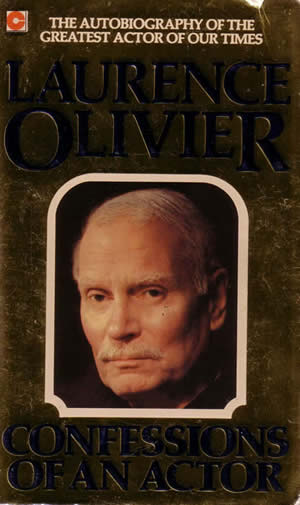 I don’t think that George Orwell had included some other ‘great motives’, which can influence writing of other authors. I would list, three more. These include, (1) self learning, (2) societal need, and (3) parental wish fulfilment. These three motives cannot be included as a partial component to any of the four motives suggested by Orwell. I’d interpret that motives such as self learning and societal need influenced the output of Freud, Russell and Annadurai tremendously, though sheer egoism, aesthetic enthusiasm, historical impulse and political purpose might have had some marginal degree of significance in their writing. While Orwell had implied ‘ego’ as the first great motive for writers, he had ignored another of Freud’s pet theme ‘wish fulfilment’.
I don’t think that George Orwell had included some other ‘great motives’, which can influence writing of other authors. I would list, three more. These include, (1) self learning, (2) societal need, and (3) parental wish fulfilment. These three motives cannot be included as a partial component to any of the four motives suggested by Orwell. I’d interpret that motives such as self learning and societal need influenced the output of Freud, Russell and Annadurai tremendously, though sheer egoism, aesthetic enthusiasm, historical impulse and political purpose might have had some marginal degree of significance in their writing. While Orwell had implied ‘ego’ as the first great motive for writers, he had ignored another of Freud’s pet theme ‘wish fulfilment’.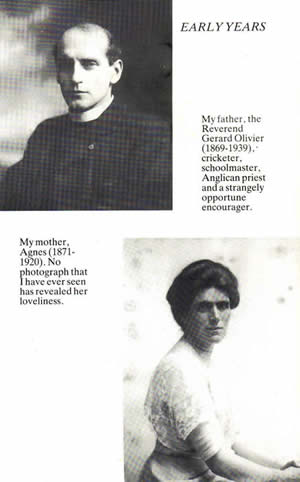 And that is how it was that, sitting in two or three inches of lukewarm water which was none too clean, on the orders of an eccentrically surprising father, my fate was sealed.”
And that is how it was that, sitting in two or three inches of lukewarm water which was none too clean, on the orders of an eccentrically surprising father, my fate was sealed.”
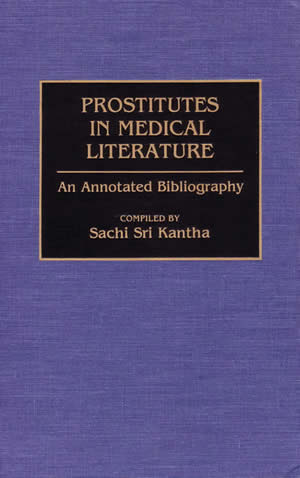 To support my view that self learning and societal needs were two great motives for writers, I provide excerpts from my prefaces to the first two books in English, published by the Greenwood Press (Westport, Connecticut).
To support my view that self learning and societal needs were two great motives for writers, I provide excerpts from my prefaces to the first two books in English, published by the Greenwood Press (Westport, Connecticut).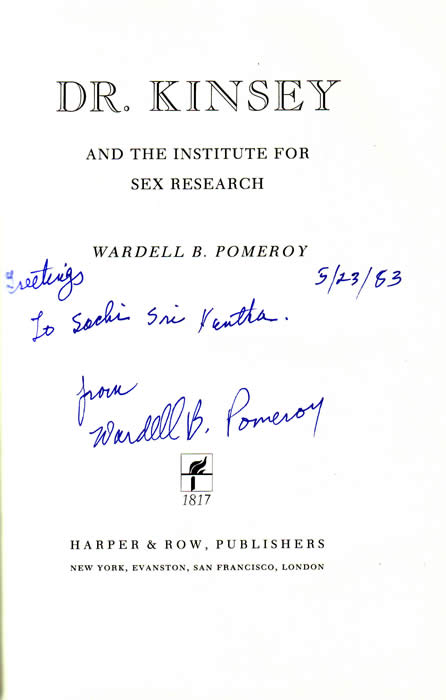 Pomeroy’s biography of Kinsey, and after he delivered his lecture, I approached him at the podium and received his autograph. A scan of Pomeroy’s autograph is provided nearby. Why I mention it here? These days, much propaganda is given to e-books and portable e-book readers (such as Amazon kindle) and their increasing sales. How can one get a famous scientist’s valued autograph in an e-book? As long as some inventor comes out with a perfected design to receive autographs and convince me, I’ll remain partial to the printed books. It has been one of my hobbies to receive autographs from eminent authors, on their works. Other than Pomeroy, I also have collected autographs from Linus Pauling, Sydney Brenner, James Watson (all Nobelists in science) and Jane Goodall in the past.
Pomeroy’s biography of Kinsey, and after he delivered his lecture, I approached him at the podium and received his autograph. A scan of Pomeroy’s autograph is provided nearby. Why I mention it here? These days, much propaganda is given to e-books and portable e-book readers (such as Amazon kindle) and their increasing sales. How can one get a famous scientist’s valued autograph in an e-book? As long as some inventor comes out with a perfected design to receive autographs and convince me, I’ll remain partial to the printed books. It has been one of my hobbies to receive autographs from eminent authors, on their works. Other than Pomeroy, I also have collected autographs from Linus Pauling, Sydney Brenner, James Watson (all Nobelists in science) and Jane Goodall in the past.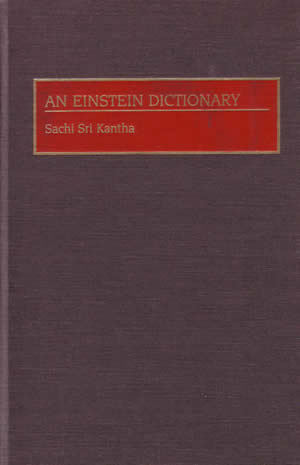 When Einstein died, I was a few weeks short of my second birthday. In 1967 I was introduced to his well-known equation E=mc2 my high school chemistry tutor Mr. P. Canagaratnam, in Colombo.Fifteen years later I read Abraham Pais’s article, ‘How Einstein got the Nobel Prize’, published in the American Scientist of July-August 1982, while I was a graduate student at the University of Illinois. That commentary provided me with the initial sparks to study more about the Ulm-born genius. In 1987, while I was in Tokyo, I wrote a letter to Dr. Pais requesting details about any existing bibliographies of Einstein’s works. He alerted me to the 1949 bibliography of Margaret Shields published in the classic volume edited by Paul Schilpp. That was the origin of this book. To the best of my knowledge, there is no reference book on Einstein comparable to Charles Darwin: A Companion (1979) by R.B. Freeman, or The Newton Handbook (1987) by D. Gjertsen. My book is an attempt to rectify this vacuum in Einstein scholarship…”
When Einstein died, I was a few weeks short of my second birthday. In 1967 I was introduced to his well-known equation E=mc2 my high school chemistry tutor Mr. P. Canagaratnam, in Colombo.Fifteen years later I read Abraham Pais’s article, ‘How Einstein got the Nobel Prize’, published in the American Scientist of July-August 1982, while I was a graduate student at the University of Illinois. That commentary provided me with the initial sparks to study more about the Ulm-born genius. In 1987, while I was in Tokyo, I wrote a letter to Dr. Pais requesting details about any existing bibliographies of Einstein’s works. He alerted me to the 1949 bibliography of Margaret Shields published in the classic volume edited by Paul Schilpp. That was the origin of this book. To the best of my knowledge, there is no reference book on Einstein comparable to Charles Darwin: A Companion (1979) by R.B. Freeman, or The Newton Handbook (1987) by D. Gjertsen. My book is an attempt to rectify this vacuum in Einstein scholarship…”